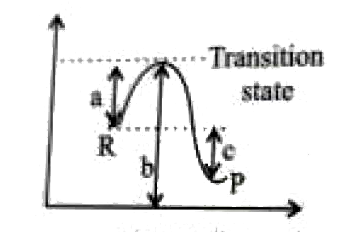The standard reaction Gibbs energy for a chemical reaction at an absolute temperature T is given by ΔrG0=A−BT where A and B are non-zero constant.Which of the following is true about this reaction? (A)ExothermicifA>0andB<0 (B)En.hermicifA<0andB>0 (C)ExothermicifA>0 (D)En.hermicifB<0
Step by step video & image solution for The standard reaction Gibbs energy for a chemical reaction at an absolute temperature T is given by Delta_(r)G^(0)=A-BT where A and B are non-zero constant.Which of the following is true about this reaction? (A) Exothermic if "A>0" and "B<0" (B) Endothermic if "A<0" and "B>0" (C) Exothermic if "A>0" (D) Endothermic if "B<0" by Chemistry experts to help you in doubts & scoring excellent marks in Class 11 exams.
Updated on:21/07/2023Similar Questions
Knowledge Check
An endothermic reaction has a postive value for ΔS∘. Which of the following is true about the equilibrium constant for this reaction?
AIt may be greater than 1 only at low temperatures.BIt may be greater than 1 only at high temperatures.CIt is greater than 1 at all temperatures.DIt is less than 1 at all temperatures.For the chemical reaction X Y , the standard reaction Gibbs energy depends on temperature T (in K) as ΔrG0 ( in kJ mol−1 ) = 120−38T . The major component of the reaction mixture at T is
AX if T=315 KBY if T =300 KCY if T =280 KDX if T =350 KVan't Hoff's equation for a chemical reaction under equilibrium is given by standard reaction enthalpy at temperature T and K is the equilibrium constant . Predict how K will vary with temperature for an exothermic
AK decreases as the temperature risesBK is remain unchangedCK increases as the temperature riseDInformation is not sufficient
Which of the following is possible for a reaction?
(a)Temperature approaching infinity
(b)Ea=0
(c)Order =0
(d) Molecularity =0
View SolutionFor the given reaction A(s)+B(g)↔C(g)+2D(s) reaction quectient at any instant is 0.40 at 300K and 0.60 at 500K then which of the following is correct?
View SolutionFor a chemical reaction temperature changes from 100C to 400C then rate of reaction will be (Assume μ=2)
View SolutionThe potential energy diagram for a reaction R→P is given below.

ΔH0 of the reaction corresponding to the energy.
View SolutionThe potential energy diagram for a reaction R→P is given below.

ΔH0 of the reaction corresponding to the energy.
View Solution
